
Does G-d forgive? How effective could we be to alter the unfavorable decree that has fallen upon us?
Can life really change drastically if we pray this Rosh Hashana or if we don’t?
If Rosh HaShana is such a crucial day of judgement, where life and death is dangled in front of us, why do we wear our finest cloths, have lavish meals and are in a festive mood? We should be in sack cloths and ashes begging for forgiveness, eating bread and water not French brick roast and the finest wine….Let’s not forget the deli roll.
Rav Pam z’l, the Rosh Yeshiva of the Mir once commented on the prayer that we say in Selichot prior to and during the Yomim Noraim (Days of Awe), “Like paupers and beggars do we come before You, knocking on Your door.” The simple interpretation is that we are paupers because we do not have sufficient good deeds to our credit. However, Rav Pam says that it is to be interpreted literally — when we appear before the Almighty on Rosh HaShana we are penniless. What does it mean we are penniless? I have money in the bank, I have a portfolio, I have a house, and I have assets! What does it mean, “I’m a pauper”?
Rav Pam explains that it means that nothing is a given. We start out afresh. There are no chazaka-automatics in life”. “You were healthy until now, but today there is a fresh judgment regarding what is going to happen now and for the coming year.” “You had success until now. Today there is a fresh Judgment.”
The reason we do not tremble before the Yom HaDin is because it is very hard for us to actually believe this idea. If a person is 50 years old, he figures that he has been through all this previously and things always seem to remain fairly stable. He assumes “Look, I just went for a physical and the doctor says I am doing quite well.” “I have been in my business or profession for 30 years; some years I do a little better and some years a little worse, but I have always had a steady income. What do you mean that I might not have parnasa this coming year?” We tend to assume that we are going into the Day of Judgment with a strong status quo in our favor. That is not true. It is very difficult for us to internalize this concept but the status quo is not guaranteed.
If we think about things we have seen and heard about during the past year, it will become all too clear how life can change in a minute. People are swept away by natural tragedies, by sudden changes of fortune, by unexpected diagnoses, and by unforeseen political changes. These sudden changes in one’s health or fortune or personal status are the most shocking things that can happen to a person. Yesterday, everything was wonderful. Overnight, things can change in such a way that a person is no longer able to function. However, such events do occur. That is the Day of Judgment of Rosh Hashana. There are no presumptions of status quo. We cannot be lulled into this false sense of security that we have been healthy, wealthy, and wise until now, presumably it will continue like that as well.
On Rosh HaShana, all bets are off. Like paupers and penniless people do we knock on Your doors. This is the reality. This is why the Din of Rosh Hashana is so awesome and scary.
There is a very interesting and important parable that must be remembered in order for us to have a better understanding of the questions above:
The parents of a young girl mentioned a few times that she should be back at home at eleven. However, she was enjoying her time with her friends so immensely that she didn’t realize how late it became. Eleven became twelve, then twelve thirtyas she waltzed into her house with a content grin. Although she had pure intention and had no notion what’s so ever to rebel against her parents, it’s just that she had a blast, a really good time and rather come home she wanted to continue spending precious moments with her friends.
It was inevitable, her parents were furious and she was punished severely. The parents were worried sick, to say the least. The anguish that they went through, they called all her friends inquiring her whereabouts and if she was okay. They, actually, almost called the police, out of desperation.
The punishment she received made the girl learn a valuable lesson about responsibility. She learned a word is a word. From then on, if she is told to be home at eleven she will make every effort to be home on time.
There is an element of maturity, an elevation of responsibility that the girl learned from the experience. However, what takes her elevation to a much higher level is if she feels the anguish she caused her parents. If she feels horrible how can she have caused such pain to her Mother and Father? Here we have a crucial turning point in life. These are crucial Torah values and the beginning of a tremendous insight into the high holidays.

There are many significant as well as inspiring meaningful moments during the course of the YAMIM NORAYIM High holidays. In the days of my youth, praying at the Sephardic shul in Forest Hills, many would attend and there would be two additional minyanim of significant size. There would be so many worshipers, the shul would be busting out of the seams. Everything was multiple sizes than a regular Shabbat attendance. Instead of having one punch ball game there would be five games going on at the same time. It was a kid haven. Interestingly, many of the non-observant, who attend perhaps once or twice a year, would be talking outside during services. Don’t forget they haven’t seen their friends conceivably for almost a year. It was very tempting for me, since I too have not seen my friends. However, during the Shofar blowing on Rosh HaShana as well as ne’ila at the end of Yom Kippur everyone would scramble inside, where it would be standing room only, to hear the shofar blowing. All would be quiet and one can see the sincerity on practically all the gatherers, whether it be the usual attenders as well as once a year individuals.
The sound of the shofar seeps through the soul of a Jew. The moment leading up to the blowing as well as “the moment” is very intense. The congregation feels the importance of the time. All eyes are on the chazzan and the shofar blower. I would feel the sounds vibrating through my whole being as I feel regret of all the sins I committed during the year. It is as if the pulsating sensation of the shofar sound was atonement for my sins.
Interestingly, there is a psalm that is recited seven times right before the shofar blowing. Psalm #47 that was written by the children of Korach. The psalm receives prime real estate being the intro to this significant moment. Who were Korach’s children and why were they deserving of such lofty honor? Why were they and their song chosen to persuade G-d to place us in the book of life? What is so special about this Psalm?
WHO WAS KORACH? 
Korach, one of the rich leaders of the Levites, and a cousin of Moses and Aaron, felt that he had been slighted and overlooked in the distribution of the highest priestly honors and leadership. He envied Moses and Aaron, and also his cousin Elzaphan, who had been put in charge of the Levites, after Aaron’s family had become elevated to the rank of Kohanim (Priests). An entire parsha in the Torah recounts the tragic incident of Korach’s rebellion and his downfall. As a result of being slighted, Korach spread evil slander against Moshe and caused a great rift in the Jewish nation. All of the people who joined Korach and supported him were killed in a most tragic yet deserving way. The Jews saw that G-d did not allow disrespect towards the great leader Moshe. Despite Moshe’s pleas with Korach and his followers to make peace so that they would not be punished, they stood their ground, and literally went down into the ground. Pride is a spiritual trait and very hard to control once it is let loose. One of the most tragic aspects of the incident was that all of Korach’s family who supported him, even young children perished because of the severity of machlokes, disputes.
Originally, the three sons of Korach who were Assir, Elkanah and Aviassaf, stood by their father’s side, however, when they witnessed the ground open up, they sincerely repented and as they were being swallowed into the ground a ledge protruded and caught them protecting them from falling into the fires of Purgatory.
It took enormous courage on the part of Korach’s sons to resist joining their father, and for this they were saved. They chose to do what they felt was right despite their training, despite the overwhelming outside influences. They were indeed seekers of truth.
That is why, according to some commentators, Korach’s three children are referred to in the verse as the “Sons of Korach,” even though that label has negative connotations. By noting that they are the sons of Korach, the Torah is actually praising them for their bold actions. Despite being the sons of Korach, the wicked schemer against G-d and Moses, they were not drawn into their father’s rebellion.
One of the most beautiful literary legacies in all of human literature is the Book of Psalms. Most of the 150 psalms are attributed to King David. A few are ascribed to Moshe and King Solomon and others. Psalm # 47, however, begins with the words: “Lam’na’tzay’ach liv’nay Korach, mizmor,” For the conductor, by the sons of Korach, a song.
Not only did Korach’s children remove themselves from the rebellion, they and their descendants reached such great spiritual heights that they were able to compose magnificent psalms. Of all 150 psalms, it is psalm #47, written by the sons of Korach, that is chosen to be recited before the sounding of the shofar on Rosh HaShana. It reaffirms the belief that if the sons of Korach can repent, so can others. If they could resist the influence of one of the greatest propagandists of all times, then we can as well. It assures us that even though no one was closer to Korach than his sons, even though they were deeply involved in the rebellion, they were able to detach themselves from the rebellious assembly.
Psalm 47:2 reads: “Sound the shofar with a joyous cry,” because we can overcome outside influences and beat evil at its own game. Like the sons of Korach, each of us can rise above destiny and outwit the unholy influences that try to derail us.
In Chronicles I 6:18-22, we learn that the great prophet Samuel is a descendant of the sons of Korach. How exceptional is the power of repentance! That from Korach’s sons – a tsaddik, one of the greatest prophet emerged.
The later Biblical history nonchalantly relates that Korach’s direct descendant Heman was one of King David’s appointees to be in charge of song in the Temple (
I Chronicles 6:16-23), and others of Korach’s descendants were the Temple gatekeepers and chefs (
I Chronicles 9:17-32). Quite a turnaround: from Korach being the chief threat to the Priesthood, to his descendants directing security and food production – areas where one can most easily murder, poison, stage a coup. Apparently it wasn’t just Heman who had musical prowess, as ten of the Bible’s Psalms are attributed in their first line to the children of Korach (Psalms
42,
44-49,
84,
85, and
87). The Rabbis seem to understand the significance of this, in that their Midrash-special insights on Psalm 1, which is not authored by Korach’s children, reads the whole poem as actually telling the story of Korach’s children’s rejection of their father’s ways, as if to say that the central theme of the book of Psalms is Korach’s children’s authorship of many of its poems.
Psalm 1 opens, “Happy is the person who does not walk in the council of the wicked”. The Rabbis explain, “This is the sons of Korach, who did not walk in the council of their father, as is said, ‘Turn away please, from the tents of these wicked men’ (Bemidbar 16:26). .
BEFORE THE SHOFAR BLOWING A VERY IMPORTANT LESSON
What’s the big deal about Korach’s sons? Someone’s life flashes in front of them and they hang on to dear life, by the skin of their teeth or else they will be swallowed up by the ground beneath them, of course they’re going to do teshuva-going to repent. It’s a no brainier!! This act, is similar to many heroes in our illustrious history, doesn’t deserve a front row seat before the shofar blower.
One has to realize, although it must have been very difficult to resist the strong current of the peer pressure, the key to Sons of Korach greatness, though, is not that they relinquished their father’s ideology the last second, although it’s very commendable, lies in the first verse ,” For the conductor, by the sons of Korach, a song”.. Song permeates emotions. Granted, they regretted their sins nevertheless, they stand out from others in our illustrious past, and they were enthusiastic to a degree that they sang. They were enthusiastic for they knew it made G-d happy. The idea we said before with the girl who stayed out late to prolong her “good time” with her friends. It’s not that a teenager is afraid of her parents for she knows if she does wrong she’ll be punished, she will lose her computer time or get grounded. It’s the fact that the teenager won’t do wrong for she doesn’t want to upset her parent and hurt their feelings. She wants to make them happy.
In essence TESHUVA means to return; return to the source. Just like when a child returns home to see his parents after a long term separation. The child is excited; he desires that feeling…. He feels tremendous joy. He is ecstatic to see his parents happy too. He glances in their eyes and is excited to see their joy… So too is the feeling when one repents and returns to G-d. He is excited for G-d for he also returned home. This is an elevated state of mind and a feeling one should strive.
The RAMBAM says one has a guarantee that the teshuva-repentance will be accepted if he does it or for that matter all mitzvot with love and enthusiasm. This is the proper attitude, an elevated attitude of happiness that the sons of Korach had.
Rabbi Chain Shmuelevtz – the great and revered Rosh Yeshiva of the Mir once said Purim is more powerful than Yom Kippur. How is that possible? Purim is holier than Yom Kippur? There is a play on words KIPPUR-IM.; it’s read KEH-PUR-IM. Yom Kippur is like Purim, insinuating that one can achieve a positive judgment from joy of the festive of Purim than the fear of Yom Kippur.
For this reason the famous phrase IVDU ET HASHEM B’SIMCHA – serve G-d with joy. That is a loaded statement which holds the key to success and long sweet life. So we wear our finest cloths and are joyous and be in a darn good mood. This is how we are able to win a positive decree and accelerate ourselves in the book of life and transform YAMIM NORAIM-days of awe to days of joy….Amein!!



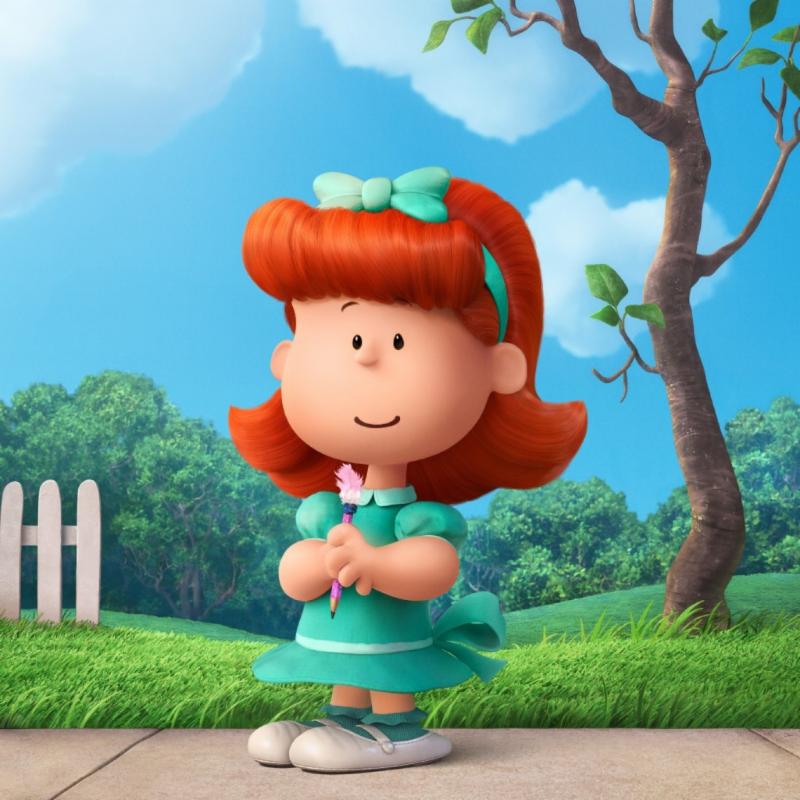
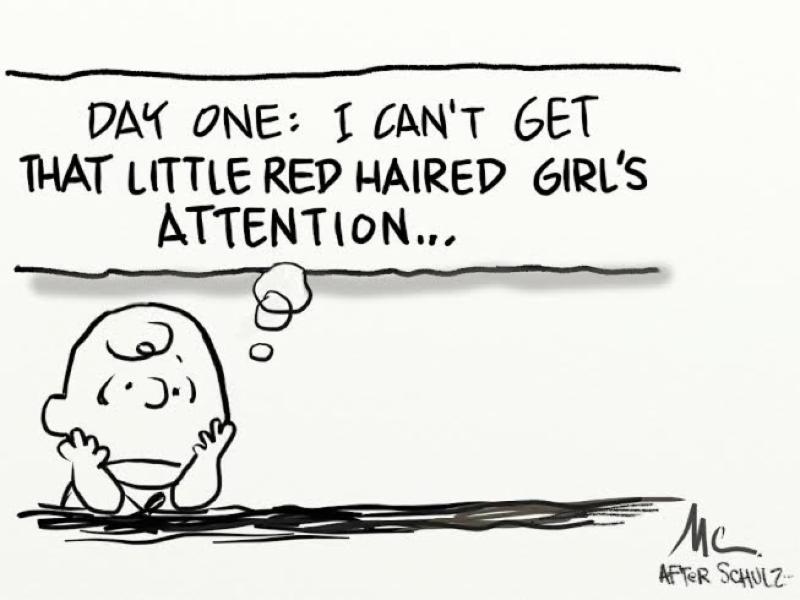

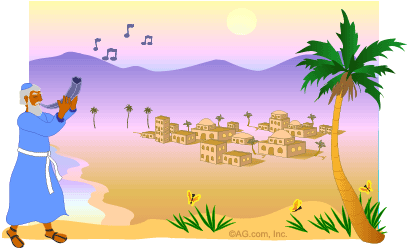
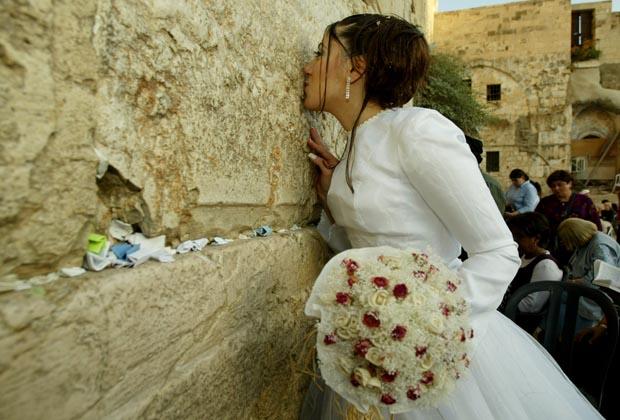
 It’s in our character to search for an advantage in life; perhaps it is in our genes; perhaps it’s because of how we were raised. Making the optimal choice is thought of wherever we go and whatever we do, because we want the best for ourselves and our children. Our people like to ask a lot of questions to give us an edge in the world. We tend to make fun of ourselves; we tend to put our culture down; “I don’t want to move there, too many Jews”; “we are all Jewish mama’s boys.” These are all famous Jewish put down jokes delivered by none other than Jews, themselves. However, deep down, we know that our people are blessed. In every criterion in life, if we put our mind to it we’re number one. We Jews are a highly competitive nation that has achieved leaps and bounds in every aspect of life. That frame of mind is ever so important in this most crucial time of the year, when we are judged for our past deeds and potential future. Squeezing the most from our prayers and behavior during the Yamim noraim-days of awe, so G-d may place us in the book of life, is our primary goal.
It’s in our character to search for an advantage in life; perhaps it is in our genes; perhaps it’s because of how we were raised. Making the optimal choice is thought of wherever we go and whatever we do, because we want the best for ourselves and our children. Our people like to ask a lot of questions to give us an edge in the world. We tend to make fun of ourselves; we tend to put our culture down; “I don’t want to move there, too many Jews”; “we are all Jewish mama’s boys.” These are all famous Jewish put down jokes delivered by none other than Jews, themselves. However, deep down, we know that our people are blessed. In every criterion in life, if we put our mind to it we’re number one. We Jews are a highly competitive nation that has achieved leaps and bounds in every aspect of life. That frame of mind is ever so important in this most crucial time of the year, when we are judged for our past deeds and potential future. Squeezing the most from our prayers and behavior during the Yamim noraim-days of awe, so G-d may place us in the book of life, is our primary goal.

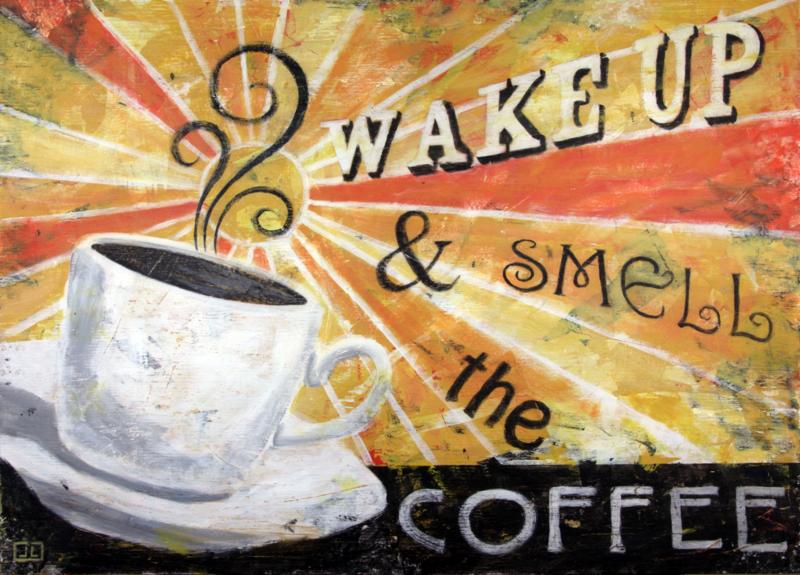


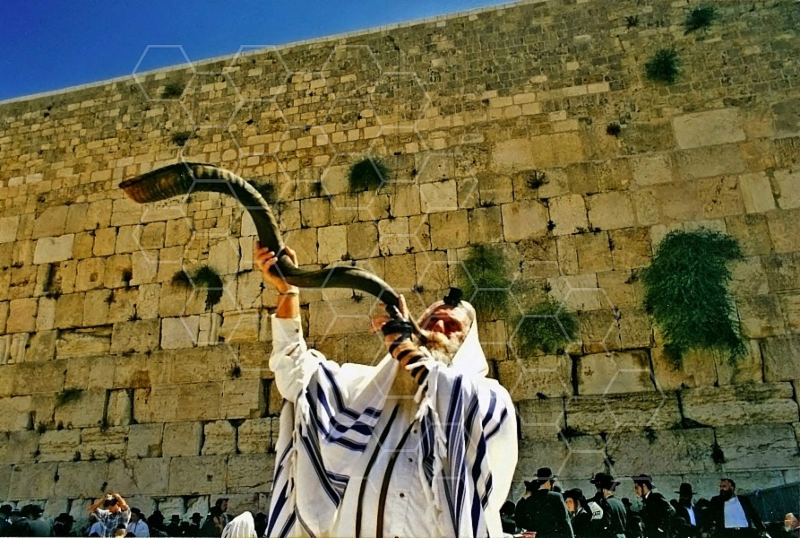


 Does G-d forgive? How effective could we be to alter the unfavorable decree that has fallen upon us?
Does G-d forgive? How effective could we be to alter the unfavorable decree that has fallen upon us?




 After 120 years when a person leaves this world, Rabbi Ariyeh Kaplan writes a mind boggling concept that in the Heavens there is no concept of time. Past, present and future are all the same. Everything happens at once. It always hurts to think, perhaps it’s off limits to his creation, of the notion that G-d lives forever and was never born. When we stand to be judged and the prosecutor accuses the individual “why did you sin?’ He will be too ashamed to answer for his sin is right in front of him… He cannot say “well, I don’t remember that one” for past, present and future are one.
After 120 years when a person leaves this world, Rabbi Ariyeh Kaplan writes a mind boggling concept that in the Heavens there is no concept of time. Past, present and future are all the same. Everything happens at once. It always hurts to think, perhaps it’s off limits to his creation, of the notion that G-d lives forever and was never born. When we stand to be judged and the prosecutor accuses the individual “why did you sin?’ He will be too ashamed to answer for his sin is right in front of him… He cannot say “well, I don’t remember that one” for past, present and future are one.







